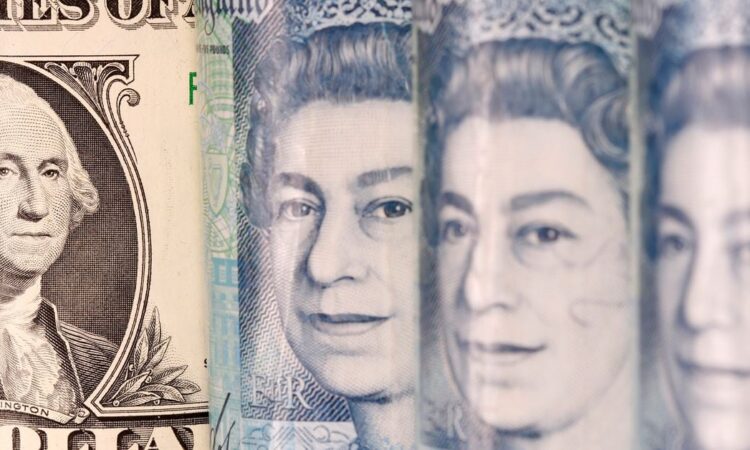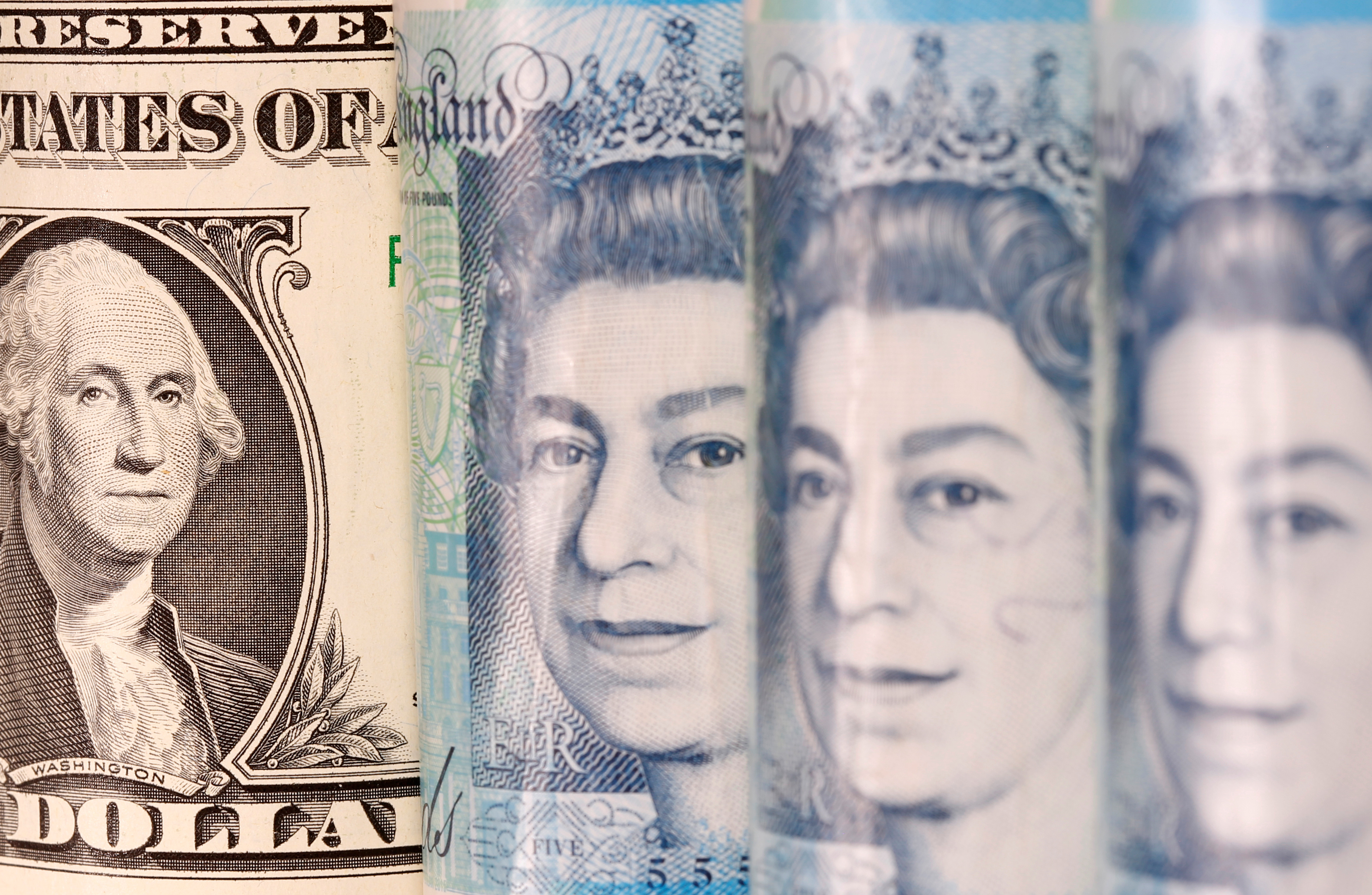

Pound and U.S. dollar banknotes are seen in this illustration taken January 6, 2020. REUTERS/Dado Ruvic/Illustration/File Photo Acquire Licensing Rights
LONDON, Nov 23 (Reuters) – Sterling on Thursday rose to its highest against the dollar since early September after data showed British companies returned to growth in November, fuelling hopes Britain will avoid a recession.
A day after finance minister Jeremy Hunt delivered a budget update, the S&P Global/CIPS UK Composite Purchasing Managers’ Index (PMI) showed a preliminary reading above the 50 threshold for growth for the first time since July.
Sterling climbed 0.5% against the dollar to $1.2560. It touched its highest of $1.2575 since Sep 6 right after the PMI data.
Against the euro , the pound rose 0.24% to 86.93 pence, having briefly touched a nine-day high against the single currency.
“November’s flash PMIs once again support our view that the UK economy is merely in a state of stagnation as opposed to outright contraction,” said Simon Harvey, Head of FX Analysis at Monex Europe.
“In conjunction with structural supply issues which should keep short-term UK rates higher for longer relative to the euro zone, we expect the UK’s better relative growth prospects to support renewed upside in sterling-euro”.
But the official outlook for the British economy now anticipates far less growth than previously forecast.
On Wednesday British finance minister Jeremy Hunt delivered a budget update and said gross domestic product is expected to grow by 0.7% in 2024, compared with the expansion of 1.8% forecast in the previous outlook in March from the Office for Budget Responsibility (OBR), Britain’s fiscal watchdog.
Hunt also announced tax cuts for workers before an expected 2024 election and he gave businesses permanent investment incentives in an attempt to speed up an economy that looks stuck in a rut.
The OBR forecasts showed the consumer price index was expected to rise by 2.8% next year, up from the March forecast of 0.9%.
The Bank of England (BoE) has also warned that inflation could be more persistent than expected.
The BoE kept interest rates on hold at its last two meetings after 14 increases in row, and Governor Andrew Bailey suggested interest rates could remain higher for longer than priced by investors.
Money markets now expect a first BoE rate cut in June, according to LSEG data.
Reporting by Joice Alves, Editing by William Maclean
Our Standards: The Thomson Reuters Trust Principles.




